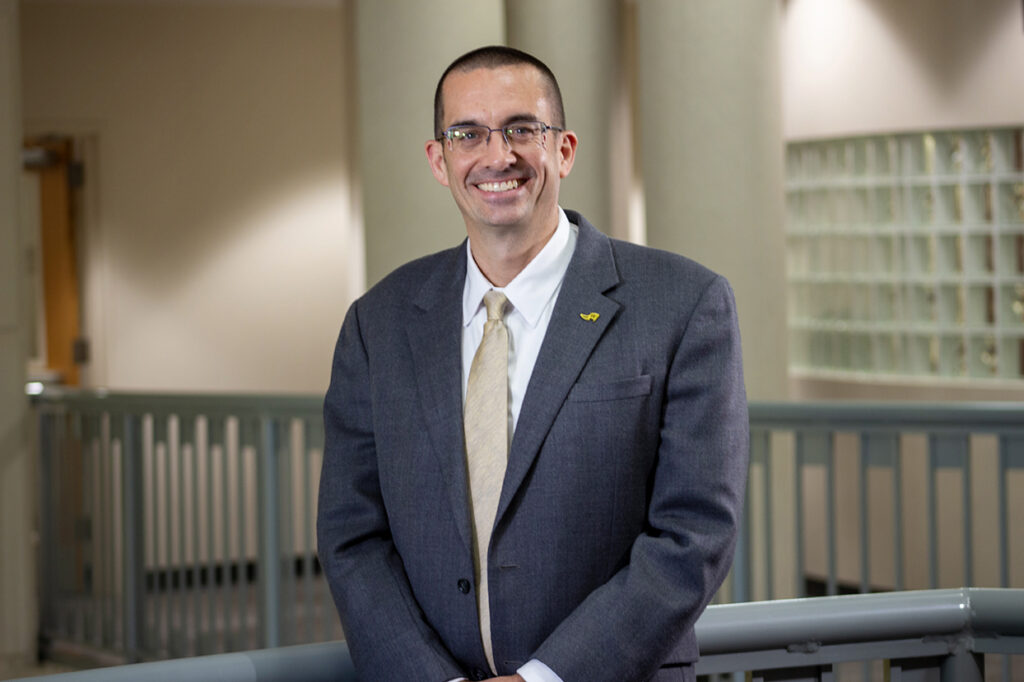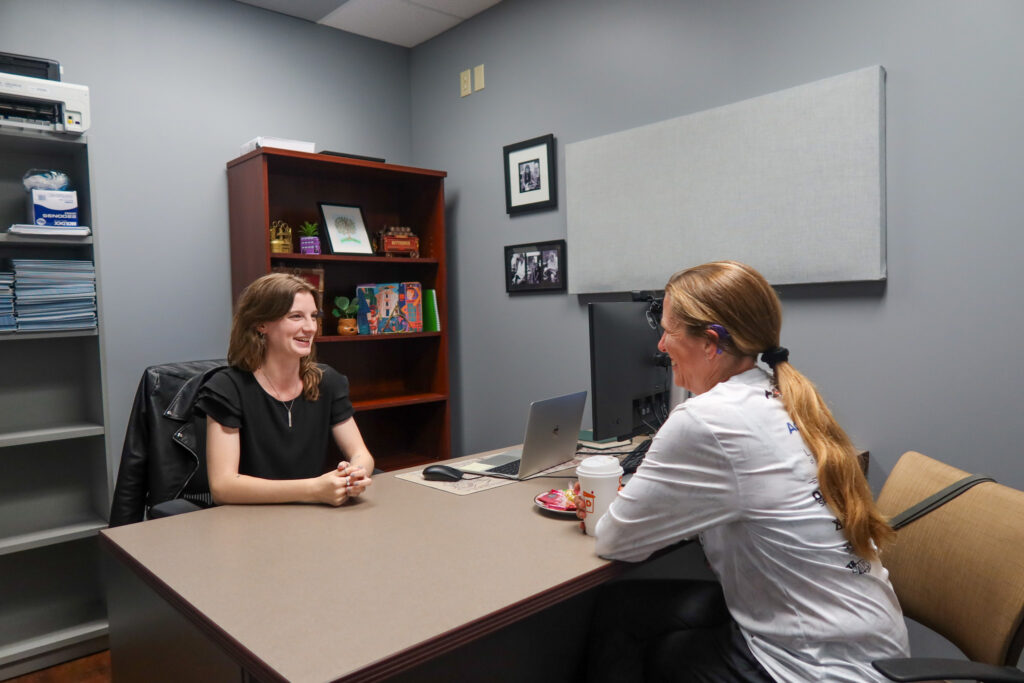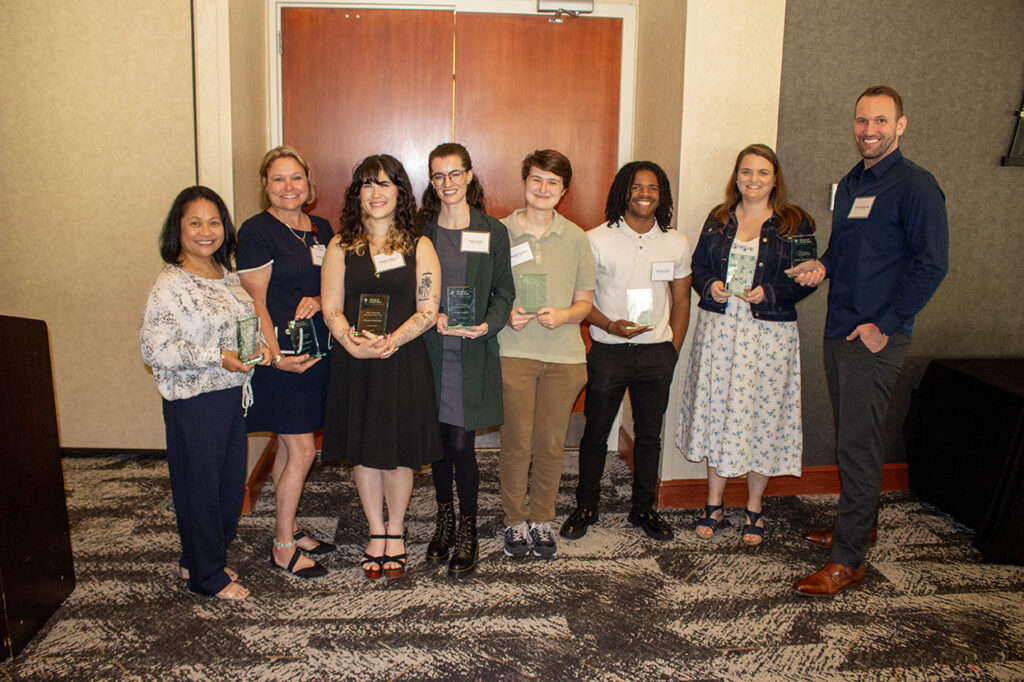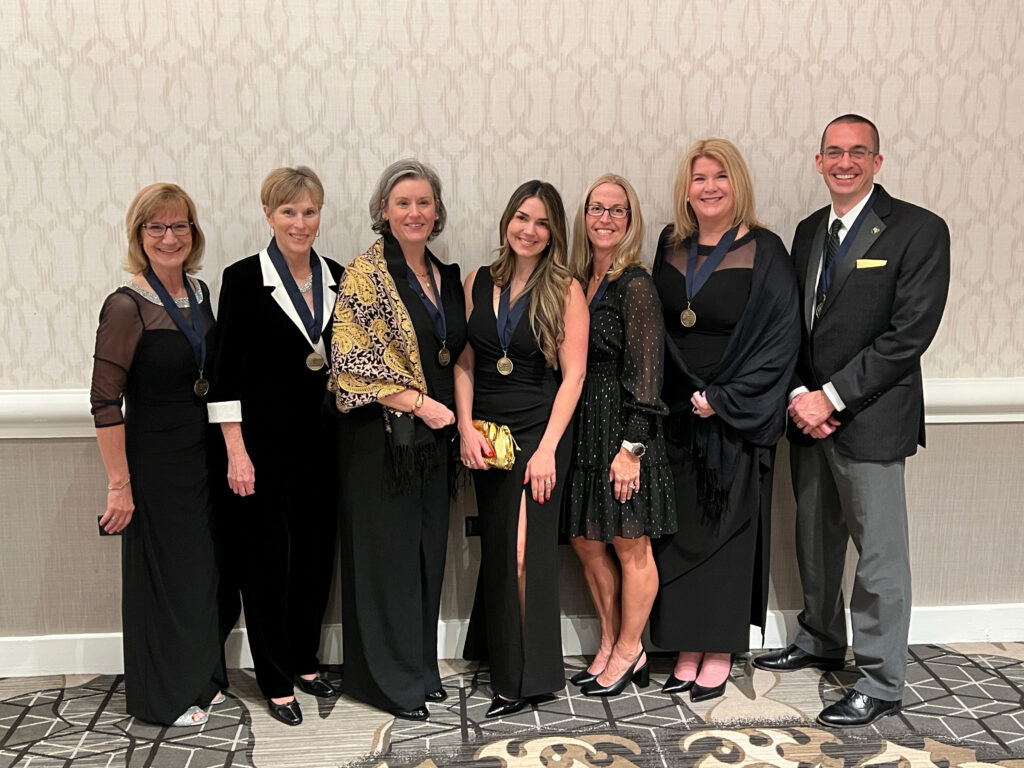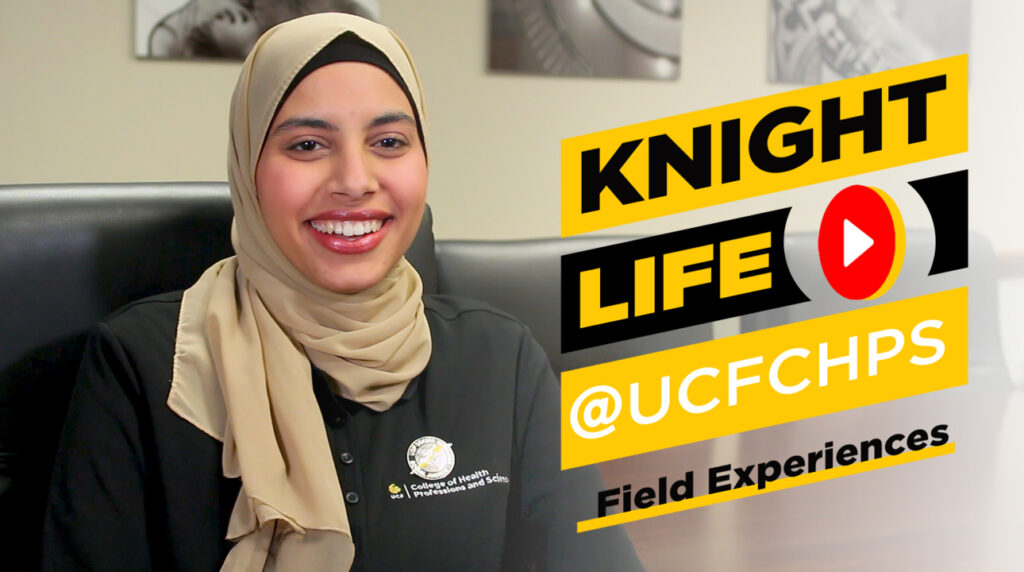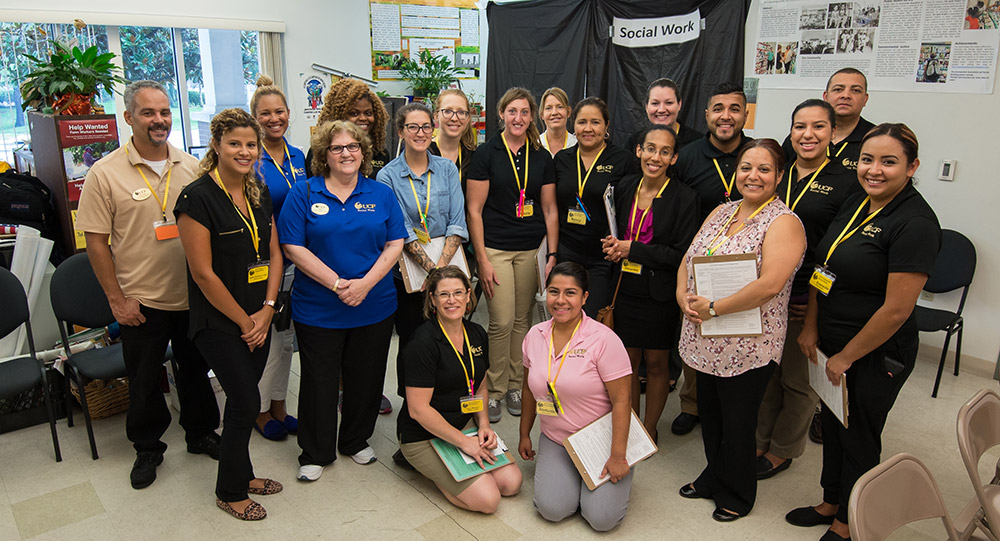
The Apopka Outreach Clinic is an interdisciplinary community pop-up clinic by the UCF Academic Health Sciences Center (AHSC), with the Farmworker Association of Florida. Developed in 2016 by five dedicated faculty members across different disciplines, the clinic was the first of its kind at UCF and received an award by the U.S. Public Health Service and the Interprofessional Education Coalition in its inaugural year.
UCF Social Work Associate Professor Tracy Wharton and Instructor Iradly Roche help run the interprofessional education (IPE) program where UCF social work students collaborate with their peers from UCF medicine, nursing, physical therapy, counselor education, and University of Florida College of Pharmacy to provide quality healthcare to approximately 1,300 uninsured farmworkers since its inception.
The Apopka Outreach Clinic eliminates some of the barriers to healthcare for many individuals. “Many patients have expressed that they don’t have regular healthcare because they have fears about going into ‘normal’ healthcare settings due to their immigration status, language barriers, and/or lack of insurance,” said Wharton. As a student-driven clinic, the Apopka Outreach Clinic does not bill clients, and all are welcome without exception.
“For our social work students, policies related to healthcare access, Deferred Action for Childhood Arrival (DACA) Program, or other civil rights issues are often abstract until they encounter a case at the clinic where these barriers become very real,” said Wharton.
Wharton recalled an incident when a Venezuelan woman, who had been diagnosed with breast cancer, was seeking chemotherapy in the U.S., but would not have access to care if she overstayed her visa. “This interaction forced the students to consider the role and scope of practice – what we are allowed to do legally, and our ethical responsibility, and limitations, to the client,” said Wharton.
Before participating in field work at the Apopka Outreach Clinic, students attend mandatory trainings where health and mental health practice behaviors and social competencies (e.g. motivational interviewing, crisis intervention, strength perspective) are linked. Each practice has the underlying theme of person-centered care or ‘meeting the client where they are at.’
“We discuss concepts students are expected to use and when is best to use them. For example, students are taught that motivational interviewing, where tone and body language are monitored, works best with some clients who show signs of substance abuse. While strength perspective, where positive narratives are explored, can be best used for emotional and mental health support,” said Roche.
Faculty are also present at the clinic to supervise and model techniques for students to serve the clients safely and correctly. “There was a situation where a patient abruptly walked away from a student. This allowed me to intervene and utilize it as an opportunity to demonstrate crisis de-escalation techniques to the student, while still respecting the client’s need for autonomy,” said Roche, who mentioned that the client expressed her gratitude before leaving.
An equally important part of the Apopka Outreach Clinic is the interdisciplinary learning benefits AHSC students receive between each other and from the community professionals involved. Adjunct Professor Angela Rojas Watson, a community volunteer at the Apopka Outreach Clinic and a mental healthcare provider at a local hospital, explained the positive experience students have while at the clinic. “The multidisciplinary approach is beneficial because students hear a client verbalize their issue and then, we come together as a team to approach a solution. Whether it could be a prescription or a referral to a therapist, each discipline applies their academic knowledge and even, cultural point of view to better assess the real needs of the client,” said Watson.
The clinic was awarded a grant from Florida Blue Foundation to expand its care and ability to connect patients to specialty providers via telehealth. With the new concern of coronavirus, the clinic is reassessing how to function within the Center for Disease Control guidelines. “We will have to get creative and utilize physical distancing to our advantage by looking into possible options like introducing telehealth components or setting up a drive-thru clinic that will work for this population,” said Wharton.
Regardless of the COVID-19 challenges, the aim and future of the Apopka Outreach Clinic remains positive. “Our work together has demonstrated that we can partner successfully, and we can work out challenges,” said Wharton.

